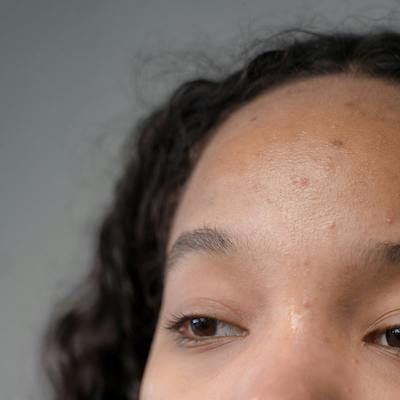News
Article
Parents of Children with Atopic Dermatitis Often Sleep Less Than 7 Hours
Author(s):
Key Takeaways
- Parents of children with atopic dermatitis have a higher likelihood of insufficient sleep and increased use of sleep medications.
- The study used data from the National Health Interview Survey, analyzing over 6 million participants.
A study showed parents of children with atopic dermatitis have an increased odds of taking medication to aid sleep.
Christopher G. Youn, MD Candidate
Credit: Stanford Biosciences

Having a child with pediatric atopic dermatitis increases the odds of parents not receiving the recommended 7 hours of sleep, according to a recent study.1
Poor sleep can harm people’s lives, increasing the risk of adverse health outcomes. For instance, a spatial regression discontinuity analysis discovered losing 19 minutes of sleep was linked to obesity and cardiovascular disease.
Reports have shown the link between childhood atopic dermatitis and parental sleep disturbance. In a 2019 UK-based longitudinal cohort study, mothers with children with atopic dermatitis were associated with a 43% increase in insufficient sleep, a 41% increase in daytime exhaustion, and a 36% increase in difficulty falling asleep.2 This study included a cohort of 11,649 mother-child pairs from a town in Southwest England who were followed from birth for an average of 11 years.
“I was particularly interested in the effects of chronic illness and sleep deprivation on families,” said lead investigator Katrina Abuabara, MD, an assistant dermatology professor at the University of California, San Francisco, in an interview with Dermatology Times.3
Although studies have discovered the link between childhood atopic dermatitis and parental sleep, much of the previous research occurred in a single site with small sample sizes.1 Additionally, not a lot of data exists on the link between pediatric atopic dermatitis and the use of parental medications to assist with sleep. Due to the limited data, investigators, led by Christopher G. Youn, MD candidate, from Stanford University School of Medicine, sought to analyze the association between pediatric atopic dermatitis on parental sleep duration and taking medications to help with sleep.
The team conducted a retrospective cross-sectional study using the 2013 – 2018 National Health Interview Survey (NHIS). The study included 6,130,919 participants with parent-reported atopic dermatitis (mean age: 7.9 years) and 41,382,420 without atopic dermatitis.
The NHIS conducted face-to-face surveys with parents about their children. Pediatric atopic dermatitis was assessed with the question, “Has [name] had…eczema or any kind of skin allergy?” Parents also answered questions about their own sleep hours and medications to help them sleep. Respondents were excluded if parents did not answer the questions on eczema, sleep hours, sleep medication, or parental age or health status.
Investigators discovered that 45.2% of parents of children with atopic dermatitis did not meet the American Academy of Sleep’s recommended 7 hours of sleep. Among these parents, only 13.3% took medications to help with sleep. As for parents of children without atopic dermatitis, 37.1% received < 7 hours of sleep, and 9.9% took medication to help sleep.
An analysis adjusted for sociodemographic characteristics, pediatric atopic conditions, pediatric and parental health status, US citizenship/birth, and parental age/sex showed that having a child with atopic dermatitis was linked to decreased odds of receiving the recommended 7 hours of sleep (adjusted odds ratio [aOR, 0.78; 95% confidence interval [CI], 0.72 – 0.85) and increased odds of taking medications to aid sleep (aOR, 1.26; 95% CI, 1.12 – 1.43).
Investigators wrote the study was limited by its inability to make causal conclusions to the cross-sectional design, recall bias, and the inability to evaluate the severity of atopic dermatitis. Investigators could also not identify parents’ exact amount of sleep loss nor specific medications used to aid sleep.
“These findings offer the largest nationally representative assessment of this topic and serve to further underscore the indirect burden of [atopic dermatitis],” investigators concluded.
References
- Youn CG, Kim JY, Chen JK, Siegel DH. Decreased Sleep Duration and Increased Use of Medication to Aid Sleep Among Parents of Children With Atopic Dermatitis: A Cross-Sectional Study of the National Health Interview Survey, 2013-2018. Pediatr Dermatol. 2024 Dec 12. doi: 10.1111/pde.15839. Epub ahead of print. PMID: 39668380.
- Ramirez FD, Chen S, Langan SM, et al. Assessment of Sleep Disturbances and Exhaustion in Mothers of Children With Atopic Dermatitis. JAMA Dermatol. 2019;155(5):556–563. doi:10.1001/jamadermatol.2018.5641
- Hilton, L. Sleep quality suffers in mothers of children with atopic dermatitis. Dermatology Times. April 11, 2019. https://www.dermatologytimes.com/view/sleep-quality-suffers-mothers-children-atopic-dermatitis. Accessed December 18, 2024.

Study Compares ChatGPT-4 Diagnostic Abilities to Teledermatologists




